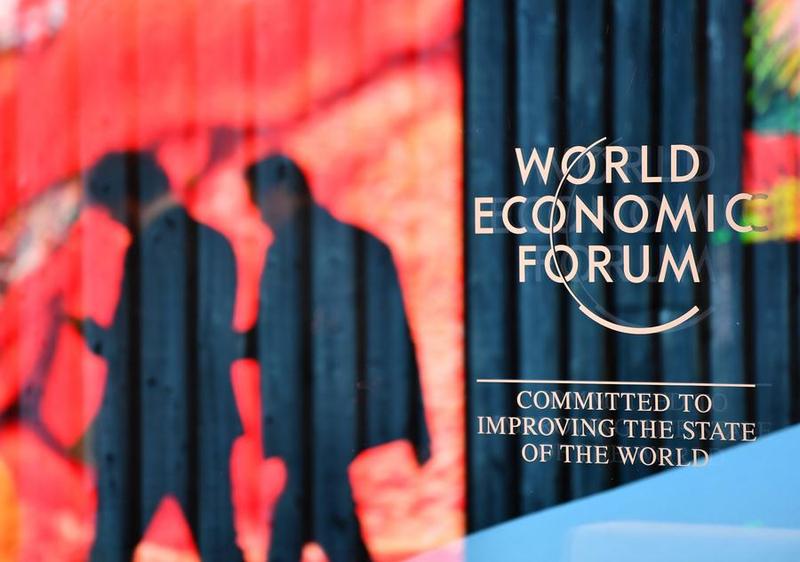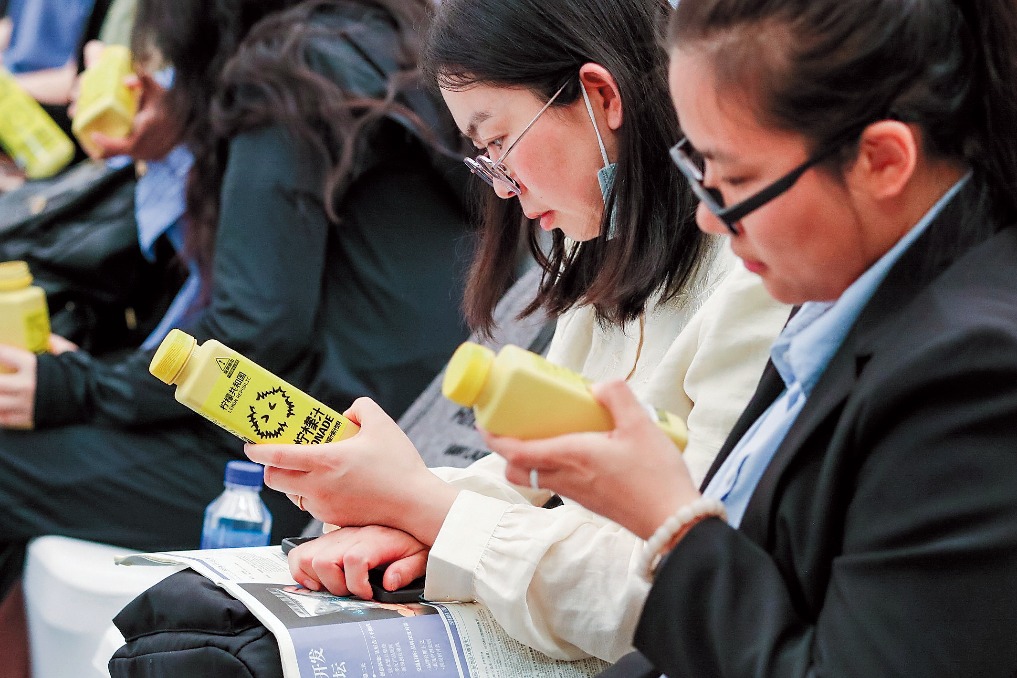Davos calls for collaboration to address global challenges in intelligent age


DAVOS, Switzerland - In hopes of finding viable solutions to global challenges in the intelligent age, nearly 3,000 attendees from over 130 countries gathered Monday in the Swiss Alpine town of Davos for the annual meeting of the World Economic Forum (WEF).
While technological innovations such as artificial intelligence (AI) are reshaping the global landscape, traditional risks in geopolitical crises, economic fragmentation and climate change also bring great uncertainties.
Facing such challenges, the WEF annual meeting 2025 will foster a spirit of cooperation and constructive optimism, said Klaus Schwab, founder and chairman of the Board of Trustees of the WEF.
CHALLENGES, OPPORTUNITIES IN INTELLIGENT AGE
Rapid advancements in AI, quantum computing and blockchain have propelled the world into the intelligent age, Schwab said.
The advancement of emerging technologies, coupled with longstanding risks, creates a convergence that presents increasingly intricate challenges for global development.
State-based armed conflict, extreme weather, geoeconomic confrontation, misinformation and disinformation, and societal polarization are the five major risks facing the world in 2025, the WEF warned in the Global Risks Report 2025.
WEF Managing Director Saadia Zahidi said that due to the situation in Ukraine, the Middle East and Sudan, geopolitical crises and armed conflicts have jumped to the top of the global risks in 2025, bringing uncertainty to global development.
The January 2025 edition of the WEF's Chief Economists Outlook highlighted significant challenges for the global economy in 2025. Over half of the economists surveyed anticipate a weakening economic outlook. The report warned that global economic fragmentation will deepen, protectionism will hinder international trade, and ongoing issues with debt and inflation will stifle growth. Furthermore, the economic recovery across major regions is expected to be uneven.
In a recent interview with Xinhua, WEF President and CEO Borge Brende said that the global supply chain has changed significantly in the post-pandemic era, and patterns like nearshoring began to emerge.
Brende stressed that decoupling will have a huge negative impact on the global economy. The International Monetary Fund believes that severe decoupling and high tariffs may shrink the global economy by 7 percent.
On another matter, AI is reshaping the global economic growth pattern and bringing new growth momentum. "If you apply AI in a good way, it can increase productivity by 10 percent in the coming decade," Brende said.
Liang Guoyong, a senior economist at the United Nations Conference on Trade and Development (UNCTAD), noted that over the past decade, digitalization has become a key driver of global economic growth. Today, artificial intelligence has emerged as a technological engine powering the digital economy.
COLLABORATION IS THE WAY FORWARD
In Brende's view, global competition is intensifying, many countries are turning inward, and international cooperation is at a low ebb. According to him, many major risks are transnational, and collaboration is the sole viable path to addressing common challenges.
Brende called on the international community to work together. "For global problems, you have to find global solutions," he said.
According to research by the WEF, the generally stable global order of cooperation established in the post-Cold War era is being challenged. "From conflicts to climate change, we are facing interconnected crises that demand coordinated, collective action," said Mark Elsner, head of the WEF's Global Risks Initiative.
"Renewed efforts to rebuild trust and foster cooperation are urgently needed. The consequences of inaction could be felt for generations to come," he said.
As one of the most prominent topics for international cooperation in recent years, global governance of AI will take center stage at this year's annual meeting. Liang, the UNCTAD economist, emphasizes that the effective governance of AI requires both multilateral and bilateral cooperation.
Multilateral institutions like the United Nations have been instrumental in shaping the global digital economy and AI governance, including the promotion of the Global Digital Compact. On a bilateral level, fostering deeper cooperation between major countries is crucial to ensuring the sustainable development of AI and its governance on the international stage, Liang said.
CHINA'S CONTRIBUTION CAPTURES GLOBAL ATTENTION
Many experts agree that China has made important contributions to promoting global cooperation and responding to common challenges.
Brende said that China believes in mutually beneficial cooperation, and plays an important role in South-South cooperation. As the world's second-largest economy, China has maintained close cooperation with other emerging economies and driven the economic growth of many other developing countries.
Amid the challenges of decoupling and trade protectionism, China's foreign trade has shown resilience. Brende is optimistic about the medium- and long-term prospects of the Chinese economy, believing that the fundamentals of China's long-term positive economy have not changed and will continue to provide momentum for global growth.
The WEF president noticed that China has taken a series of measures to stimulate domestic consumption and effectively boosted the economy. He believes that with more than 10 million college graduates each year, including a large number of engineers, China has an "extremely important" human capital advantage to embrace the intelligent age.
Chen Liming, chair of Greater China of the WEF, said that in addition to significant achievements in AI technology and industry, China has made positive contributions to the global governance of AI.
China has put forward the Global AI Governance Initiative, which provides a Chinese solution to global AI governance, emphasizing the principle of rendering equal importance to the development and security of AI. "This initiative not only is a positive response to global challenges, but also provides an important reference for the international community on the issue of AI governance," Chen said.





































